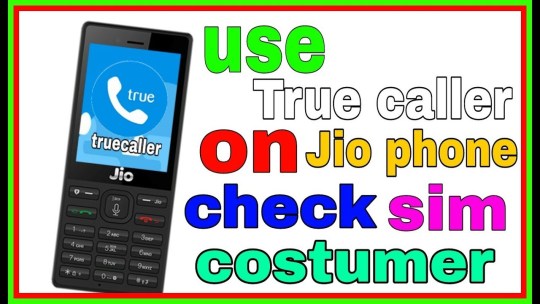Don't wanna be here? Send us removal request.
Text
Truecaller online jio phone

A great many people still accept that the way Truecaller makes its mutual phonebook of contacts is to scratch the data from every client's rundown of contacts, in this manner surrendering your data regardless of whether you don't utilize the application, as long as somebody you know does. In any case, Truecaller expressed this isn't the situation. In a blog entry, the organization said that it uses telephone indexes, informal organizations, and furthermore includes names when the "network proposes names through our site and applications."
It additionally noted, "Truecaller does not transfer phonebooks to make them accessible or open from Google Play or Apple App Store downloads. We pursue Google Play and Apple App Store rules carefully, which precludes any application from doing as such." However, before Google and Apple changed their rules, Truecaller did in reality transfer your contacts.
"When we were permitted to transfer Truecaller online jio phone phonebooks, this was never managed without an unequivocal assent of the client and was a discretionary authorization," Manan Shah, Director Marketing — India, Truecaller, wrote to HuffPost India. "The application's center highlights remained completely useful regardless of whether the client decided not to share their phonebook. We generally have and will keep on submitting to all guidelines/arrangements and henceforth when the Play Store and App Store changed these strategies, we agreed to them."
Protection specialists still prompt alert around applications like this, as you could discover your name and number recorded on the application regardless of whether you've never utilized it."Truecaller isn't new to debate and security infringement. The very structure of the base administration lays on allowing itself the consent to gather and share individual data about you that isn't openly accessible, regardless of whether you never pursued the administration and never consented to their Terms of Service and Privacy Policy," an announcement from the Software Freedom Law Center (SFLC) noted.
"The application gathers data from various clients, and after that offers that data with outsiders, without assent from or even notice to clients to whom that data relates. Assent is taken from clients that give their location book to Truecaller, and not from clients to whom that data relates."
Consents incorporate amplifier, your gadget data, camera, area, photographs, media, and records, sending and getting instant messages, every one of your contacts, Wi-Fi associations, and substantially more. "There are explanations behind every one of these consents, and numerous applications that are innocuous are likewise utilizing numerous comparative authorizations," called attention to Saravanan K, a portable security specialist in Bengaluru — which focuses to the bigger stressing situation. Outsider trackers in Truecaller
Things get murkier as you consider Truecaller's advancement from being an application that sits in everybody's telephone, assembling an immense swathe of information, into a promotion stage and a money related administrations suppliers. At the point when the Truecaller UPI connecting episode occurred, an Indian security analyst who passes by Nemo chose to investigate the application and found that it was loaded up with outsider following Software Development Kits (SDKs), basically bits of code from different organizations that sit inside the Truecaller application and can be utilized to follow clients.
1 note
·
View note